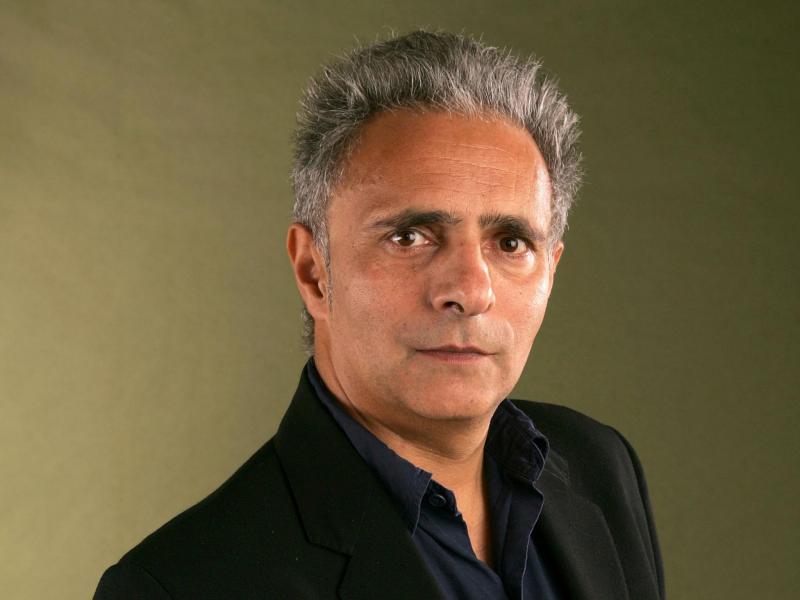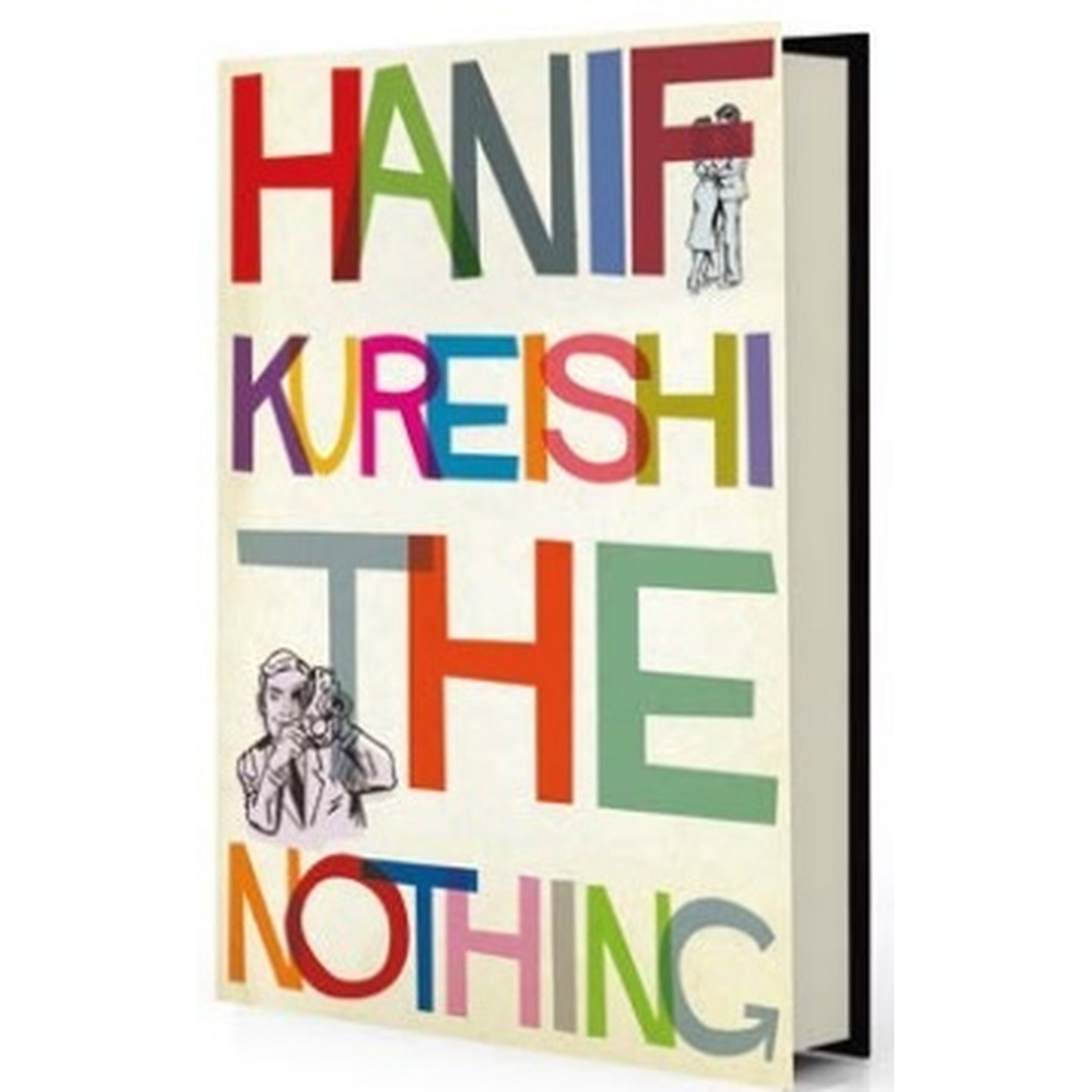Hanif Kureishi: The Nothing review - a glittering chamber of ice | reviews, news & interviews
Hanif Kureishi: The Nothing review - a glittering chamber of ice
Hanif Kureishi: The Nothing review - a glittering chamber of ice
A taut, brittle and witty view inside the mischievous head of an ageing misanthrope

Kureishi is mostly loved for his bittersweet panoramas of suburban London, ribald and piquant with satire. The Nothing discards that broad canvas and creeps into a glittering chamber of ice, in which the only subjects are the dying urges of the manipulative, voyeuristic narcissist Waldo, told in brittle, epigrammatic style.
Waldo is a much-garlanded filmmaker in his declining years, his body gradually giving up in protest at years of hedonistic abuse. His younger wife Zee, between stints nursing Waldo, appears to be warming her nights with Waldo’s friend Eddie, a shiftless, failing film writer. Appropriately for a retired and infirm giant of cinema, Waldo copes by immersing himself in the sound and image of their affair, bugging, spying and filming his quarry and creating endless compilations on the kaleidoscope of screens around his flat.
Kureishi has more than film in mind, too. The title is surely a reference to Shakespeare’s Much Ado About Nothing, in which “nothing”, pronounced “noting” in the late 16th Century, meant both the act of annotation (something Waldo does continually on his various digital devices), and the female genitalia, which are, in the form of Zee as desired object, the novel’s central image. Though Kureishi’s tone is much darker, more Measure for Measure.
 To pursue the title’s imagery further, Waldo is a sour old cunt, jealous, vengeful, scatalogical and controlling. There are passages in which some readers will stall at the grim misanthropy of proceedings. It’s entirely in character, for example, that Waldo would exploit his knowledge of Eddie’s abusive childhood in order to unsettle him at a crucial moment.
To pursue the title’s imagery further, Waldo is a sour old cunt, jealous, vengeful, scatalogical and controlling. There are passages in which some readers will stall at the grim misanthropy of proceedings. It’s entirely in character, for example, that Waldo would exploit his knowledge of Eddie’s abusive childhood in order to unsettle him at a crucial moment.
Eddie and Zee, meanwhile, are less accomplished villains, but hardly sympathetic. Zee repeatedly threatens to smother Waldo with a pillow, while Eddie turns out to have a veritable caravan of jilted wives, unfunded children and unsatisfied creditors trailing in his wake. Both appear to be planning a life together on Waldo’s money as soon as they can cajole him into a one-way trip to Switzerland. There’s no one to root for if you like wholesome closure.
A sense of humour and mischief is Waldo’s only redeeming feature, amid the schemes. Kureishi gives a bravura performance as his ventriloquist, and Waldo’s senile terseness (quite different from so many of Kureishi’s rather baggy creations) is the perfect foundation for eruptions of aphoristic glee. “Narcissism is our religion. The selfie stick is our cross,” he notes. Or: “Sexual feeling might decline, but I have learned that the libido, like Elvis and jealousy, never does.” Shorn of his power to make anything else, Waldo makes phrases.
There’s a sardonic glance at inter-racial politics insofar as Zee was lured to Waldo from a stifling marriage to a Pakistani Muslim. “From a Muslim heritage of modesty… under my tutelage she became sexual,” Waldo boasts. Yet - unlike so many of Kureishi’s characters - the cast is essentially a rootless, international crew, their chameleonic identities defined by the location of a film set they’re working on or nationality of restaurant they dine in. That no one in the novel has much of a hinterland helps draw together the entire focus to the view from Waldo’s feverish, blinking eyes.
That taut focus makes it all work. The reader has a ringside seat in Waldo’s diseased but still rather brilliant head, convulsing with fury and resentment as the consequences of impotence, in all their forms, assert an asphyxiating grip.
- The Nothing by Hanif Kureishi (Faber, £14.99)
- More book reviews on theartsdesk
rating
Share this article
The future of Arts Journalism
You can stop theartsdesk.com closing!
We urgently need financing to survive. Our fundraising drive has thus far raised £49,000 but we need to reach £100,000 or we will be forced to close. Please contribute here: https://gofund.me/c3f6033d
And if you can forward this information to anyone who might assist, we’d be grateful.

Subscribe to theartsdesk.com
Thank you for continuing to read our work on theartsdesk.com. For unlimited access to every article in its entirety, including our archive of more than 15,000 pieces, we're asking for £5 per month or £40 per year. We feel it's a very good deal, and hope you do too.
To take a subscription now simply click here.
And if you're looking for that extra gift for a friend or family member, why not treat them to a theartsdesk.com gift subscription?
more Books
 'We are bowled over!' Thank you for your messages of love and support
Much-appreciated words of commendation from readers and the cultural community
'We are bowled over!' Thank you for your messages of love and support
Much-appreciated words of commendation from readers and the cultural community
 Thomas Pynchon - Shadow Ticket review - pulp diction
Thomas Pynchon's latest (and possibly last) book is fun - for a while
Thomas Pynchon - Shadow Ticket review - pulp diction
Thomas Pynchon's latest (and possibly last) book is fun - for a while
 Justin Lewis: Into the Groove review - fun and fact-filled trip through Eighties pop
Month by month journey through a decade gives insights into ordinary people’s lives
Justin Lewis: Into the Groove review - fun and fact-filled trip through Eighties pop
Month by month journey through a decade gives insights into ordinary people’s lives
 Joanna Pocock: Greyhound review - on the road again
A writer retraces her steps to furrow a deeper path through modern America
Joanna Pocock: Greyhound review - on the road again
A writer retraces her steps to furrow a deeper path through modern America
 Mark Hussey: Mrs Dalloway - Biography of a Novel review - echoes across crises
On the centenary of the work's publication an insightful book shows its prescience
Mark Hussey: Mrs Dalloway - Biography of a Novel review - echoes across crises
On the centenary of the work's publication an insightful book shows its prescience
 Frances Wilson: Electric Spark - The Enigma of Muriel Spark review - the matter of fact
Frances Wilson employs her full artistic power to keep pace with Spark’s fantastic and fugitive life
Frances Wilson: Electric Spark - The Enigma of Muriel Spark review - the matter of fact
Frances Wilson employs her full artistic power to keep pace with Spark’s fantastic and fugitive life
 Elizabeth Alker: Everything We Do is Music review - Prokofiev goes pop
A compelling journey into a surprising musical kinship
Elizabeth Alker: Everything We Do is Music review - Prokofiev goes pop
A compelling journey into a surprising musical kinship
 Natalia Ginzburg: The City and the House review - a dying art
Dick Davis renders this analogue love-letter in polyphonic English
Natalia Ginzburg: The City and the House review - a dying art
Dick Davis renders this analogue love-letter in polyphonic English
 Tom Raworth: Cancer review - truthfulness
A 'lost' book reconfirms Raworth’s legacy as one of the great lyric poets
Tom Raworth: Cancer review - truthfulness
A 'lost' book reconfirms Raworth’s legacy as one of the great lyric poets
 Ian Leslie: John and Paul - A Love Story in Songs review - help!
Ian Leslie loses himself in amateur psychology, and fatally misreads The Beatles
Ian Leslie: John and Paul - A Love Story in Songs review - help!
Ian Leslie loses himself in amateur psychology, and fatally misreads The Beatles
 Samuel Arbesman: The Magic of Code review - the spark ages
A wide-eyed take on our digital world can’t quite dispel the dangers
Samuel Arbesman: The Magic of Code review - the spark ages
A wide-eyed take on our digital world can’t quite dispel the dangers
 Zsuzsanna Gahse: Mountainish review - seeking refuge
Notes on danger and dialogue in the shadow of the Swiss Alps
Zsuzsanna Gahse: Mountainish review - seeking refuge
Notes on danger and dialogue in the shadow of the Swiss Alps

Add comment